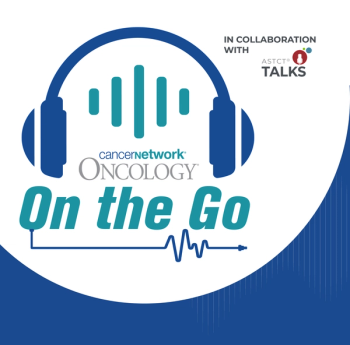
Episode 1: NIAGARA Study is the Forefront of Post-ASCO GU Discussion in Bladder Cancer
The Oncology Decoded podcast highlighted the impact of the results from the NIAGARA trial for patients with bladder cancer in a post-ASCO GU discussion.
During the 2025 ASCO Genitourinary Cancers Symposium, Oncology Decoded held their inaugural podcast with a live filming taking place at the conference. The first episode focused on bladder cancer specifically, neoadjuvant vs adjuvant therapy options and the use of cisplatin vs carboplatin.
Meet the expert panel involved in the discussion:
- Manojkumar Bupathi, MD, MS, executive co-chair of Genitourinary Cancer Research Executive Committee at Sarah Cannon Research Institute; medical oncologist with Rocky Mountain Cancer Centers specializing in solid tumors and genitourinary cancers
- Benjamin Garmezy, MD, associate director of Genitourinary Research and and executive co-chair of Genitourinary Cancer Research Executive Committee at Sarah Cannon Research Institute; Medical Oncologist at SCRI Oncology Partners specializing in genitourinary cancers
- Petros Grivas, MD, PhD, professor in the Clinical Research Division and clinical director of Genitourinary Cancers Program at Fred Hutch Cancer Center;
- David Morris, MD, MS, president of Urology Associated, PC.
During the discussion on neoadjuvant therapy, the panelist brought up results from the phase 3 NIAGARA trial (NCT03732677) which assessed durvalumab (Imfinzi) along with radical cystectomy and adjuvant chemotherapy followed by radical cystectomy.
For those who achieved a pathological complete response (pCR), the median overall survival (OS) was not reached (NR) in the durvalumab arm or the comparator arm (HR, 0.72; 95% CI, 0.387-1.426). For those who did not have a pCR, the median OS was NR in both arms as well (HR, 0.84; 95% CI, 0.660-1.068). The intent-to-treat (ITT) population OS HR was 0.75 (95% CI, 0.59-0.93).
In the ITT population, the pCR was 37.3% (95% CI, 33.2%-41.6%) in the durvalumab arm and 27.5% (95% CI, 23.8%-31.6%) in the comparator arm (OR, 1.60-1.23-2.08).
Results from this trial then led into the use of cisplatin vs carboplatin. From a urologist perspective, Morris notes that all patients should be afforded the opportunity for neoadjuvant therapy vs being thrown right into surgery. He also mentions this scenario can occur because of the criteria for administering cisplatin.
“If I had one message today for our friends and colleagues in practice, do not use carboplatin in the neoadjuvant setting. If you can give cisplatin, we can talk about who can be cisplatin-eligible. If you cannot give cisplatin safely, the options could be radical cystectomy upfront with liminal dissection or clinical trial, if available and eligible, and bladder preservation can be another strategy in these patients,” Grivas said.
Grivas backed up his reasoning here because of clinical trials that have been conducted regarding pCR rates. These rates appeared to be lower in those given carboplatin vs those given cisplatin. Because of this, he will not use carboplatin as a neoadjuvant or adjuvant approach for muscle-invasive bladder cancer.
Moving forward, they hope to focus on capturing additional data from real-world studies as well as more trials to provide evidence-based research for the treatment of bladder cancer.
Reference
Galsky M, Van Der Heijden M, Catto J, et al. Additional efficacy and safety outcomes and an exploratory analysis of the impact of pathological complete response (pCR) on long-term outcomes from NIAGARA. J Clin Oncol 43, 2025 (suppl 5; abstr 659).
Physicians’ Education Resource®, LLC, is accredited by the Accreditation Council for Continuing Medical Education (ACCME) to provide continuing medical education for physicians.
Physicians’ Education Resource®, LLC, designates this enduring material for a maximum of 0.5 AMA PRA Category 1 Credits™. Physicians should claim only the credit commensurate with the extent of their participation in the activity.
Instructions on How to Receive Credit
- Listen to this podcast in its entirety.
- Go to
gotoper.com/credit and enter code: 8926 - Answer the evaluation questions.
- Request credit using the drop-down menu.
- You may immediately download your certificate.
Newsletter
Stay up to date on recent advances in the multidisciplinary approach to cancer.




































